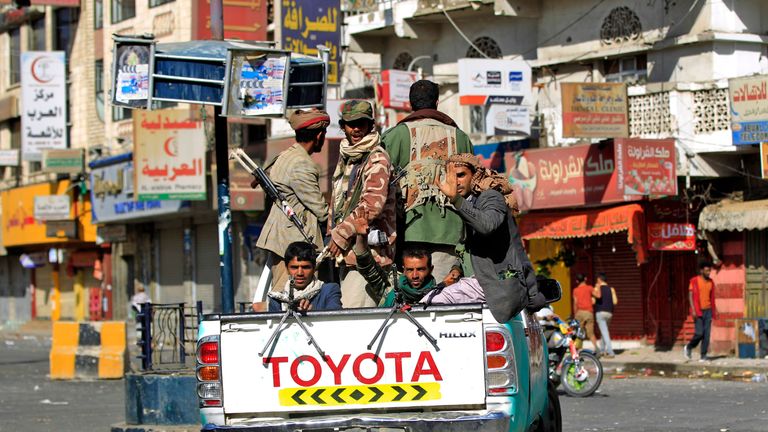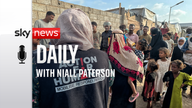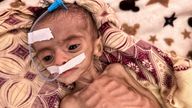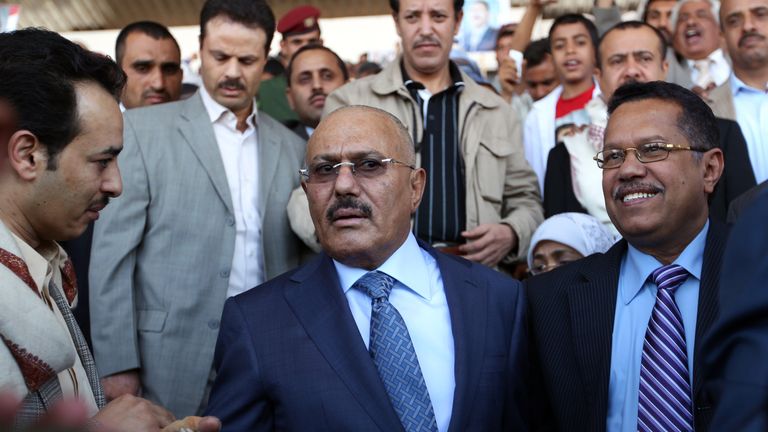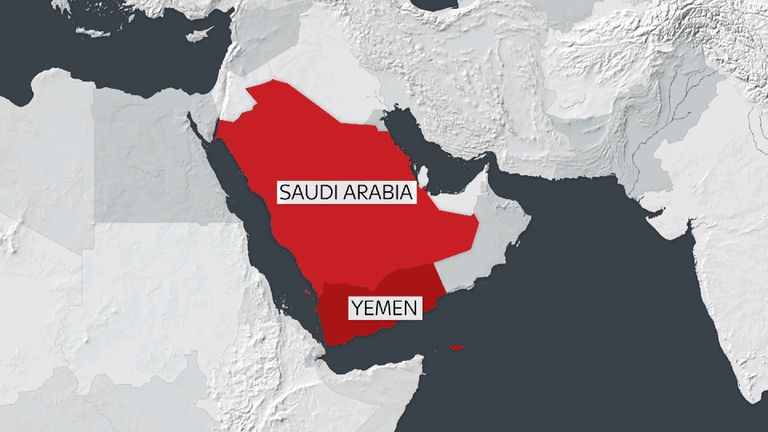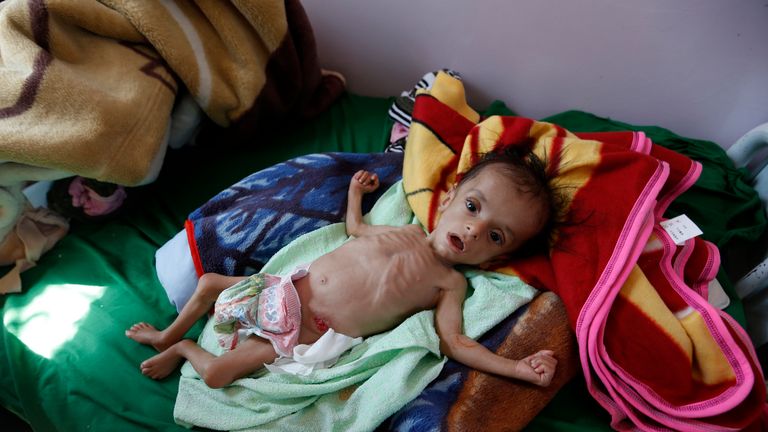Yemen: The civil war and humanitarian crisis explained
Former Yemeni president and rebel affiliate Ali Abdullah Salah was killed on Monday, days after signalling he was to switch sides.
Tuesday 5 December 2017 07:51, UK
Yemen has been plagued by civil war for the past two years. Sky News explains who is fighting who and why.
What's happening in Yemen?
Yemen is racked with a devastating civil war and massive humanitarian crisis.
UNICEF recently reported that a child dies every 10 minutes in Yemen. Some 400,000 children are at risk of starvation and another 2.2 million need urgent care.
Thousands of civilians have been killed, mainly during a Saudi-led air bombardment, and there has been starvation and outbreaks of cholera.
Who's fighting who?
Houthi rebels backed by Iran have taken much of the north of Yemen and the capital Sanaa, and are battling government forces holding out in pockets of the country and the southern city of Aden.
The government forces are backed by a Saudi-led coalition which is supplied by British arms companies and advised on targeting by the British military.
Its air campaign has done enormous damage to civilians and civilian infrastructure, but failed to dislodge the Houthis.
Who was Ali Abudullah Saleh?
In the words of one commentator on Twitter, the former president was the Tony Montana of Yemeni politics.
He was a political gambler and a survivor who ruled by playing one faction off against another. He is thought to have looted billions from the country in his time in office.
He said ruling Yemen was like dancing on the heads of snakes. He managed to do so for more than three decades, but in the end ran out of luck.
Forced out of office under international pressure in the wake of the Arab Spring, he threw in his lot with Houthi rebels who he had spent years fighting against while president.
This weekend he signalled he was about to change sides again but the Houthis got to him first, killing him in an ambush south of Sanaa.
What does his death mean?
If Saleh had deserted the Houthis and switched to the Saudi-backed government, he might have offered a chance of brokering a settlement between the two.
His manipulative brand of politics may well have been one of the factors behind his country's disintegration into war, but he also had the skills to weave alliances.
His death removes a key figure and deal-maker from Yemeni politics. It is also like to be followed by retaliatory action by Saudi Arabia.
Increased airstrikes are almost certain but there is also the greater likelihood of ground forces being deployed by the Saudi-led coaltion for the first time.
What are the prospects for peace?
Nil.
Saudi Arabia was already furious at the launch of an accurate missile out of Yemen that fell near Riyadh International Airport on 5 November, blaming Iran.
Yemen's conflict is a proxy war between Saudi Arabia and Iran and tensions between them have rarely been so high.
Saleh may have been on the side of Saudi Arabia's enemies but he had signalled a return to the fold and his killing will also be blamed on Iran.
In the current climate, neither power can afford to look weak - which means a devastating civil war is only likely to get nastier.

